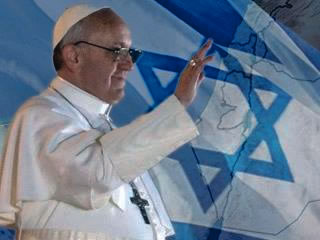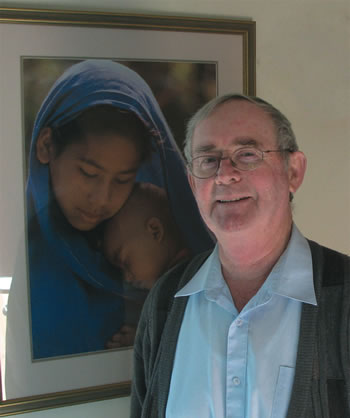Jewish-Catholic Relationships
Recently the New Zealand Catholic Bishops Committee for Interfaith Relationships invited Rabbi Fred Morgan, a senior Rabbi of the Temple Beth Israel, Melbourne, to New Zealand. He gave a series of lectures in various centres throughout the country. The springboard for this invitation was to celebrate the fifty years since the document “Nostra Aetate” was issued by the Second Vatican Council. The aim of these lectures was to reflect on what has happened to Catholic Jewish relations since this radical change of approach by the Church was announced. 
Pope Francis said at a similar anniversary held in Rome in an address to the International Council of Christians and Jews, “We are strangers no more, but friends, and brothers and sisters. Even with our different perspectives, we confess one God, Creator of the Universe and Lord of History. And he, in his infinite wisdom, always blesses our commitment to dialogue.”
My guess is that the document “Nostra Aetate” does not figure very much to the fore of our Catholic consciousness in New Zealand. It was and still is a revolutionary document stating the Church’s changed relationship to Non-Christian Religions. It contains the following, “ The Church urges her sons and daughters to enter with prudence and charity into discussion and collaboration with members of other religions. Let Christians, while witnessing to their own faith and way of life, acknowledge, preserve and encourage the spiritual and moral truths among Non-Christians, also their social life and culture.”
Recent popes have, by public gestures in receiving leading Jewish figures in Rome, demonstrated a close bond between our two faith communities at a top level. It is only by these actions that the message of this important document can begin to impinge on the consciousness of the ordinary faithful of both communities. Rabbi Fred Morgan said throughout his ministry in Britain and Australia he has worked with small inter-faith groups who took their message to both parish and synagogue groups. Dialogue leading to self knowledge is a key way to the truth. This in turn leads to the breakdown of prejudice and discrimination. We have to look no further than the present refugee situation than to see the reaping of the whirlwind in our own days when relationships based on religion fail.
One of the factors that Rabbi Morgan noted was that all dialogue must begin from where each community is at. There must be a dignity and respect in approaching the beliefs of the other. Each religion has to account for other religions. Deeply held religious beliefs and symbols must be understood and honoured.
There can at times seem that little headway is being made, but we only have to look at the interdenominational relationships in our own country since Vatican II to see that progress can be made.
With regard to , Nostra Aetate makes this hopeful statement,
“In company with the Prophets and this same Apostle (Paul), the Church awaits that day, known to God alone, on which all peoples will address the Lord in a single voice and “serve him shoulder to shoulder.” (Zp 3:9).

 Entries(RSS)
Entries(RSS)